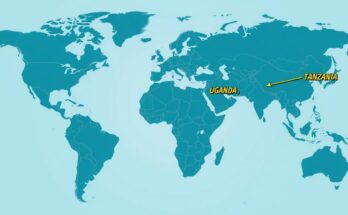President Trump revealed plans to negotiate with Iran regarding its nuclear program, prompting security experts to caution against a repeat of his ineffective diplomacy with North Korea. Former national security advisor John Hannah expressed concerns over prolonged negotiations yielding little progress. Urgent deadlines loom regarding Iran’s nuclear capabilities, necessitating decisive action from the Trump administration and strategic engagement with Israel.
This week, President Donald Trump expressed his desire to negotiate with Iran, prompting concern among security experts. John Hannah, a former national security advisor, advised against forming a close relationship similar to that with Kim Jong Un, stating it could yield little progress in limiting Iran’s nuclear ambitions.
Trump has previously referred to his rapport with Kim as a ‘love affair,’ yet his diplomatic efforts have failed to curtail North Korea’s nuclear advancements. During a recent forum in Washington, Hannah articulated his fears that entering into negotiations with Iran could result in prolonged discussions without meaningful resolution.
Trump’s announcement on his Truth Social platform emphasized the intention to work towards a ‘Verified Nuclear Peace Agreement.’ Despite initiating a sanctions campaign aimed at Iran’s oil exports, he expressed hesitation about the sanctions amid ongoing concerns over negotiations.
Currently, there are no clear outlines on the leadership or framework of these negotiations. Hannah remarked on the historical impotency of negotiations with Iran to prevent nuclear escalation, considering that previous dialogues have failed to diminish the threat efficiently.
There are pressing deadlines regarding nuclear negotiations with Iran, notably with Russia set to assume a pivotal role in the United Nations Security Council soon. Additionally, by October 2025, the capability for applying snapback sanctions under the Joint Comprehensive Plan of Action will expire.
Former officials highlighted the need for a strategic dialogue among the U.S. and Israeli leaders to clarify the timeframe for negotiations, given Iran’s aggressive nuclear pursuits. Military drills between U.S. and Israeli forces might serve to remind Iran of potential repercussions if it continues its nuclear trajectory.
Ayatollah Ali Khamenei of Iran has publicly rejected any negotiations with the Trump administration, maintaining a hardline stance on nuclear considerations.
President Donald Trump’s recent expression of intent to negotiate with Iran has raised eyebrows within the national security community, especially in light of his earlier experiences with North Korea. Security experts warn against repeating the diplomatic pitfalls encountered during engagements with Kim Jong Un, emphasizing the importance of clear strategies and timelines in negotiations to prevent Iran from advancing its nuclear capabilities further. The geopolitical context includes significant deadlines related to the Joint Comprehensive Plan of Action (JCPOA) and ongoing tensions with Iran’s nuclear program, suggesting an urgent need for effective and organized diplomatic efforts.
In conclusion, President Trump’s renewed interest in negotiating with Iran draws parallels to his prior dealings with North Korea, raising concerns among security advisors. Key figures warn that without a strategic approach and clear objectives, these negotiations may lead to a protracted stalemate, allowing Iran to further its nuclear ambitions unchecked. Thus, the success of future diplomatic efforts hinges on establishing firm timelines and clear expectations, alongside necessary pressure tactics.
Original Source: www.foxnews.com




